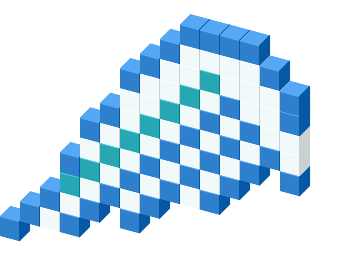Internship subjects
The following is a list of topics which are being be proposed as internship topics (sujets de stage) to students from Nantes and Brest, but also outside Nantes/Brest. They will also constitute themes studied in our research reading groups and seminars. They will be funded by AILE or by our other projects.
2019/02/12 update: all funded positions are filled for this session.
We are looking for candidates who have
- The intent of pursuing an Engineering degree or a Masters degree in Artificial Intelligence, Data Science, Natural Language Processing, Machine Learning or a related field
- Capacity to work independently, as well as collaborate within a team
- Solid programming skills
If you are interested or have any questions, please do not hesitate to contact Olivier Aubert (olivier.aubert@univ-nantes.fr), Nicolas Hernandez (nicolas.hernandez@univ-nantes.fr) and the referrer of the internship topic.
To apply, send a curriculum vitae together with your academic results and a motivation letter and indicate the topics of interest.
Measuring the hardness of an educational resource
- Many educational resources are available on the web but it is important to evaluate automatically the age group the resource is intended for and the level required to understand it. This task requires the use of machine learning. This project is principally based on X5-GON data.
- Referrers: Colin de la Higuera (cdlh@univ-nantes.fr), LS2N TALN team
Detecting the theme shifts in a lecture
- In a lecture presented by a one hour video or a 50 pages pdf, the themes vary over time. We aim to use techniques from data science to study the so-called concept drift in this context. This project is based on X5-GON/PASTEL data.
- Referrers: Nicolas Hernandez (nicolas.hernandez@univ-nantes.fr) and Colin de la Higuera (cdlh@univ-nantes.fr), LS2N TALN team
Predicting MOOC attrition
- Using learning traces left by MOOC users, and generalizing from previous activities, can we compute attrition indicators? This project is based on HUBBLE data.
- Referrers: Antoine Pigeau (antoine.pigeau@univ-nantes.fr), LS2N DUKe team
Mixing AI techniques to give relevant insights on Mooc attrition
- Using learning traces left by MOOC users, how can we mix AI techniques to give relevant insights and explainable results as well. This project is based on HUBBLE data.
- Referrers: Serge Garlatti (Serge.Garlatti@imt-atlantique.fr), IHSEV Lab-STICC
Designing feedback
- How can we design feedback, for example dashboards that makes those insights explicit and actionable for the users? This project is based on HUBBLE data.
- Referrers: Jean-Marie Gilliot (jm.gilliot@imt-atlantique.fr), IHSEV Lab-STICC
Resource evolution
- Analyzing user activity would allow to identify activities generating unexpected behaviour, and therefore help resource/MOOCs authors to refactor their content using this information. This project is principally based on FUN MOOCs data.
- Referrers: Yannick Prié (yannick.prie@univ-nantes.fr), LS2N DUKe team
What next?
- Identification and suggestion of personalized pedagogical paths (made of texts, videos, and other media) according to specific objectives of knowledge and competencies to be acquired by the learner. This is mainly related to X5-GON data.
- Referrers: Hoël le Capitaine (hoel.lecapitaine@univ-nantes.fr), LS2N DUKe team
From micro-competence to professional project.
- Can we support learner to define their personal learning paths, in terms of objectives and aimed competencies? A meta review on AI, competencies and self development will be part of the work;
- Referrers: Jean-Marie Gilliot (jm.gilliot@imt-atlantique.fr) & Issam Rebaï (issam.rebai@imt-atlantique.fr), IHSEV Lab-STICC
Educational datahub
- Re-centralizing data is a powerful paradigm to enable semantic indexing, incremental data integration, and query discovery. Many resources exist in education but they are spread around the web. We propose to build a datahub for educational resources. This portal accepts resources as RDF data and allows query processing across data.
- Referrers: Hala Skaf (hala.skaf@univ-nantes.fr), LS2N GDD team
Discourse transcripts chaptering
- Automatically structuring the discourse transcript of a lecture (with titles and hierarchical segments) will help the teacher for building later his/her SPOC/MOOC, and the learner for browsing the educational material with new tools. The work will be first based on the slides presentation structure then the use case of no material or third-party material will be considered. This is related to the PASTEL data.
- Keywords : Concepts alignment, Hierarchical segmentation, Divisive clustering, Natural Language Processing, Machine Learning, Operational research
- Referrers: Nicolas Hernandez (nicolas.hernandez@univ-nantes.fr), LS2N TALN team
Linking heterogeneous controlled educational resources
- Given various MIME type materials representing lecture slides, lecture discourse transcript, readings, homework material, domain corpus, wikipedia, … build a service to allow resources browsing via a graph of resources or concepts present in the resources. This engineering project is based on the PASTEL data. Underlying problems are : text extraction, logical structure analysis, segmentation and indexation
- Keyworks : Information retrieval, NoSQL, Apache ElasticSearch, Apache Tika, Python
- Referrers: Nicolas Hernandez (nicolas.hernandez@univ-nantes.fr), LS2N TALN team
Estimating the difficulty of understanding concepts in a textual educational resource
- Assuming that the understanding degree of a person in a term relies on his/her knowledge degree in the domain of the term, the idea is to provide various measure with continue values to describe the terms in a domain (e.g. Domain maximum likelihood estimation, number of neighbors in a graph of concepts based on the Wikipedia…). This is related to the PASTEL data.
- Keywords : Natural Language Processing, Machine Learning,
- Referrers: Nicolas Hernandez (nicolas.hernandez@univ-nantes.fr), LS2N TALN team
